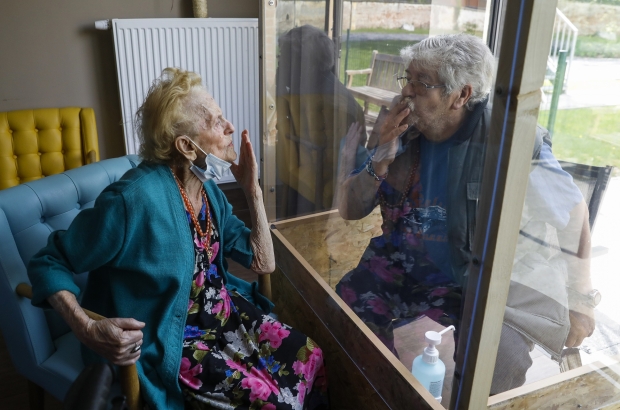- Daily & Weekly newsletters
- Buy & download The Bulletin
- Comment on our articles
'Deplorable' wages and working conditions: 18,000 caregivers join protest in Brussels
An estimated 18,000 employees in the care sector held a demonstration in Brussels this week, condemning the "deplorable" wages and working conditions they face amid a labour shortage.
Unions say that neither federal nor regional governments have included support measures for the social and health sectors in 2023 budgets, Bruzz reports.
This is in spite of the fact that these sectors are facing labour shortages, difficulties in recruitment and the lingering effects of the pandemic – in particular when it comes to the healthcare sector.
“The demonstration was a great success,” the secretary of the CNE union, Yves Hellendorff, said. The union estimated a turnout of 22,500 people for Wednesday morning’s march.
Banners were carried with slogans such as ‘Caregivers tired, patients in danger’, ‘Applause is not enough’ and ‘Healthcare: hands, time and people, now!’
Protestors said that recruitment was becoming impossible due to working conditions that are both untenable and unattractive.
“Wage and working conditions are deplorable,” one healthcare worker told Bruzz.
“It is becoming increasingly common for a department that used to have six employees to be reduced to just two full-time staff. The pandemic has killed a job that was already incredibly difficult before.”
In the face of what unions call "chronic disinvestment" from the government, they are demanding substantial refinancing for all sectors in order to allow for satisfactory working conditions.
That means better wages, stable contracts, stable hours that are known in advance, sufficient staff, immediate and systematic replacement of absent staff, and the implementation of concrete measures to reduce the mental health burden.
Unions also point to a lack of work-life balance, and how inflation and the decline of purchasing power have made it hard for every worker, but especially those just starting their careers.
“What we are doing today is sounding the alarm – the nurses and care assistants have done everything they can, and more,” Yves Hellendorff said.
“The current working conditions will inevitably lead to a reduction in the range of services and the quality of care, as well as to the closure of nursing homes and hospital beds. We don't want that kind of society.
"If tomorrow's governments preparing for the next elections do not include an ambitious plan for our professions, the population will de facto have lower quality care.”
Nathalie Lionnet, secretary for SECTa Federal, agreed.
“Today, we are facing a massive shortage of care staff, which has a direct impact on the services offered by hospitals, and by extension on the wellbeing of society,” Lionnet said.
“Moreover, with the increasing use of outsourcing, care relationships are increasingly being commercialised. Today we want to send a wake-up call to the government. Band-aid measures are no longer enough.”
Unions plan to meet later this week to prepare an action plan and make their demands more concrete to politicians.


















